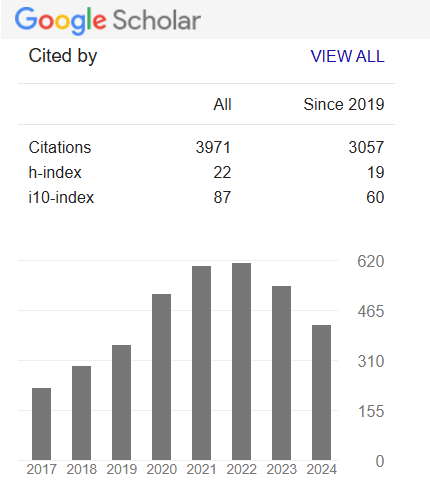Plant Poison Effect in the Human Body – A Review
Keywords:
Plant, Poison, human body, effect, IndiaAbstract
Plant poisoning is found in any species of plant which when touch, smell or ingested in sufficient quantity can evoke toxic or fatal reaction to an organism is referred as poisonous plant. Some of the common poisonous plants are: Abrus precatorius, Castor bean, laurel, horse chestnuts, belladonna, rhubarb and many more. This research paper analyzes the various; both harmful as well as beneficial effects of plant poisons on the human body. The poisonous chemical found in plants are normal biochemical and have been developed as an evolutionary response for self-protection. The plant poisons may enter into the body either by inhalation, swallowing or by contact which can be based upon chemical constitutes which classifies plant poison into alkaloids, glucosidases, proteins, oxalates, anti-vitamins, tannins, volatile ether layers etc. The alkaloids by far are the most predominant Plant poisons. Plant poison shows both useful as well as harmful effects in human beings and animals as well. They show wide range of side effects from minor itching, nausea, vomiting to adverse effects like psychosis, paralysis, teratogenicity, arrhythmias but they can also be used be in the production of cosmetics, ulcers, menstrual cramps, cancer and in treatment of man ailments and diseases and many more. Our results showed that Plant poisons have positive as well as negative effects in the human body. The implications of this research paper could be used to study more about the sanguine effects and practical applications of the plant poisons on the human body.
Downloads
References
Braun L, Cohen M. Herbs and Natural Supplements, Volume 2: An Evidence-Based Guide. 4th ed. Australia: Churchill Livingstone; 2015. p. 1368.
Chen X, Deng L, Jiang X, Wu T. Chinese herbal medicine for oesophageal cancer. Cochrane Database Syst Rev. 2016;1:CD004520.
Clayton, M.J., Davis, T.Z., Knoppel, E.L., Stegelmeier. Hepatotoxic Plants that Poison Livestock. Vet Clin North Am Food Anim Pract 2020; 36 (3): 715- 723
Farzaei M.H., Bayrami, Z., Farzaei, F., Aneva, I., Das, S.K., Patra, J.K., Das, G., Abdollahi, M. Poisoning by Medical Plants. Arch Iran Med 2020; 23 (2): 117- 127
Housecroft, C. E. Plant Toxins: Poison or Therapeutic? Chimia (Aarau) 2020; 74 (5): 421- 422.
Karunarathne, A., Bhalla, A., Sethi., A., Perera, U., Eddleston, M. Importance of pesticides for lethal poisoning in India during 1999 to 2018: a systemic review. BMC Public Health 2021; 21 (1): 1441
Mootoosamy A, Fawzi Mahomoodally M. Ethnomedicinal application of native remedies used against diabetes and related complications in Mauritius. J Ethnopharmacol. 2014;151:413–44.
Sofowora A, Ogunbodede E, Onayade A. The role and place of medicinal plants in the strategies for disease prevention. Afr J Tradit Complement Altern Med. 2013;10:210–29.
Stegelmeier, B.L., Davis, T.Z., Clayton, M.J. Neurotoxic Plants that Poison Livestock. Vet Clin North Am Food Anim Pract 2020; 36 (3): 673- 688.
Tiwari S. CARROT – A potent cancer curing natural medicine. J Nat Prod. 2016;9:4.
Welch, K. Editorial- Plant Toxins. Toxicon 2019; 168: 140.
Downloads
Published
How to Cite
Issue
Section
License
Copyright (c) 2022 Authors

This work is licensed under a Creative Commons Attribution 4.0 International License.
Open Access This article is licensed under a Creative Commons Attribution 4.0 International License, which permits use, sharing, adaptation, distribution and reproduction in any medium or format, as long as you give appropriate credit to the original author(s) and the source, provide a link to the Creative Commons license, and indicate if changes were made. The images or other third party material in this article are included in the article’s Creative Commons license unless indicated otherwise in a credit line to the material. If the material is not included in the article’s Creative Commons license and your intended use is not permitted by statutory regulation or exceeds the permitted use, you will need to obtain permission directly from the copyright holder. To view a copy of this license, visit http://creativecommons.org/ licenses/by/4.0/











